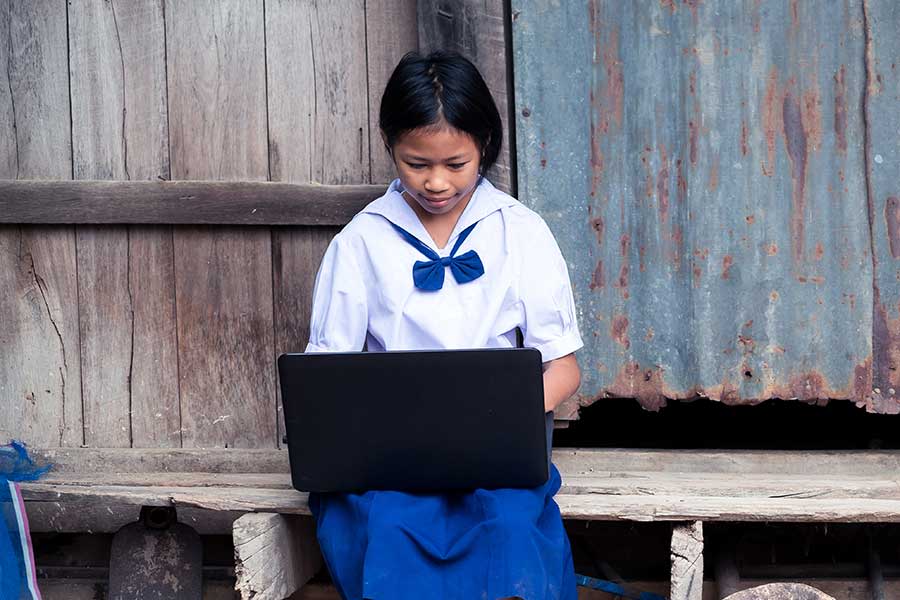Advancing girls' education
Promising initiatives to advance girls’ education in the ASEAN region.
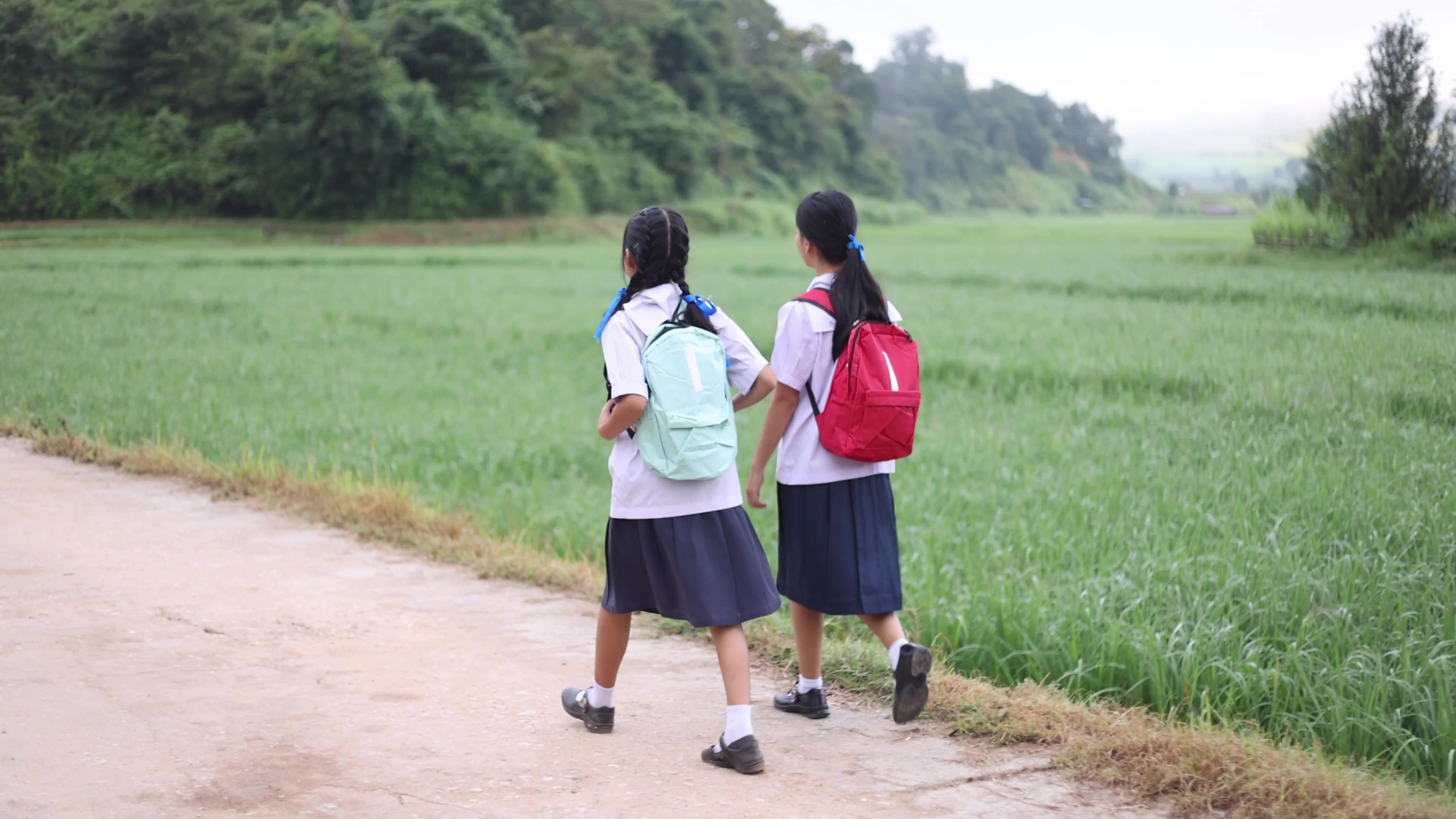
The ASEAN region has some of the highest levels of disparity in educational outcomes in the world. Improving foundational learning, and equity and inclusion for girls, women and marginalised groups is an important focus of educational improvement and labour market reform agendas regionally and internationally.
While significant progress has been made across the ASEAN region to improve access to education, there are alarming inequities in learning outcomes for children between and within education systems. The Southeast Primary Learning Metrics 2019 (SEA-PLM) results confirm there is a foundational learning crisis in many countries for both girls and boys, with children from disadvantaged contexts falling behind.
Between 2 and 50 per cent of children across SEA-PLM countries are proficient in basic literacy and numeracy. Without foundational skills in literacy and maths, these children are likely to be disadvantaged across their lives. Many of these children are unlikely to successfully transition to secondary school or further education. The COVID-19 pandemic also caused unprecedented disruption to learning, with the most vulnerable and disadvantaged hit hardest.
Generally, gender gaps in education outcomes have closed and in some countries have been reversed. This story of progress is the result of decades of investment in gender equity initiatives in the ASEAN region. Yet challenges persist that constrain girls and women from realising their full potential. While digital skills are becoming increasingly important for employment and life, girls and women do not have the same opportunities to develop these skills at home, in schools and in the workplace.
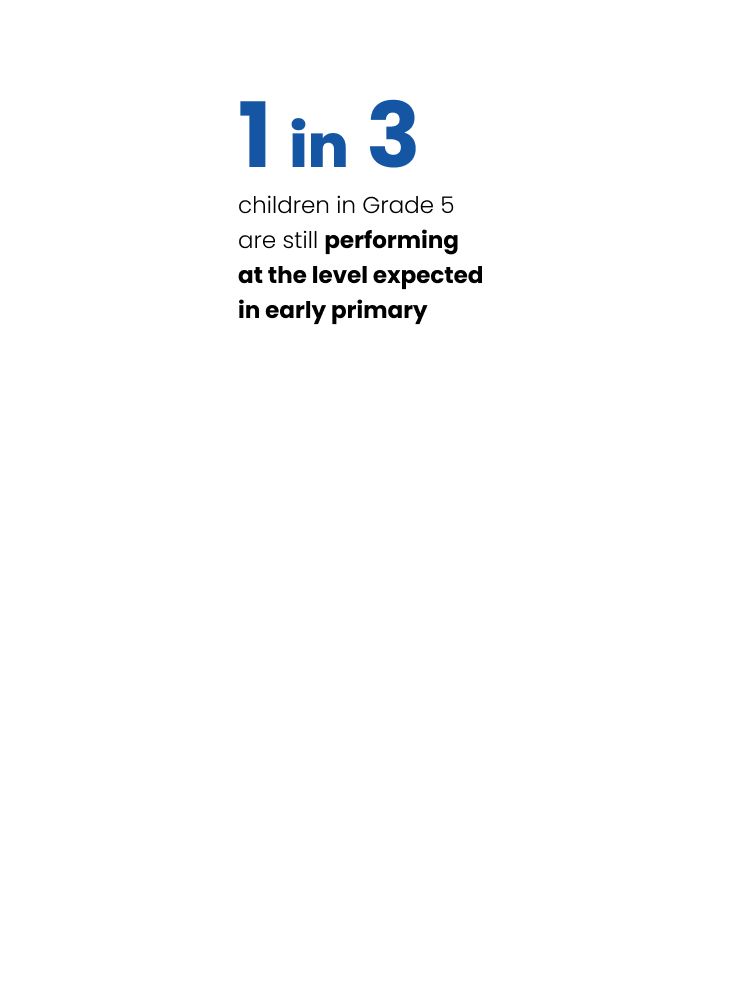
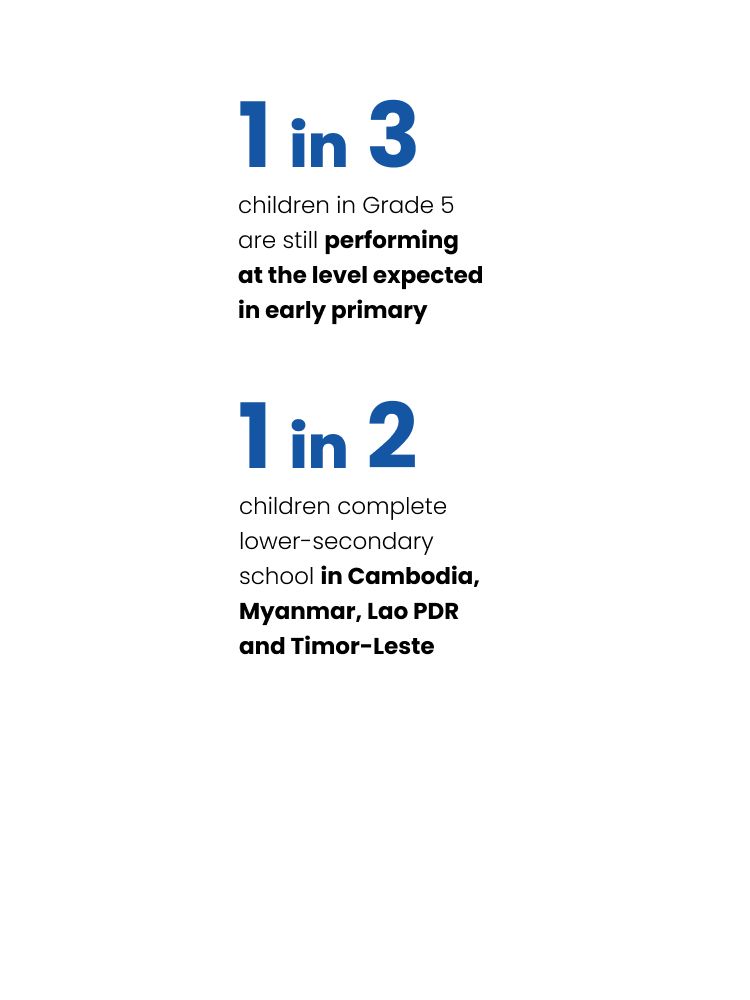
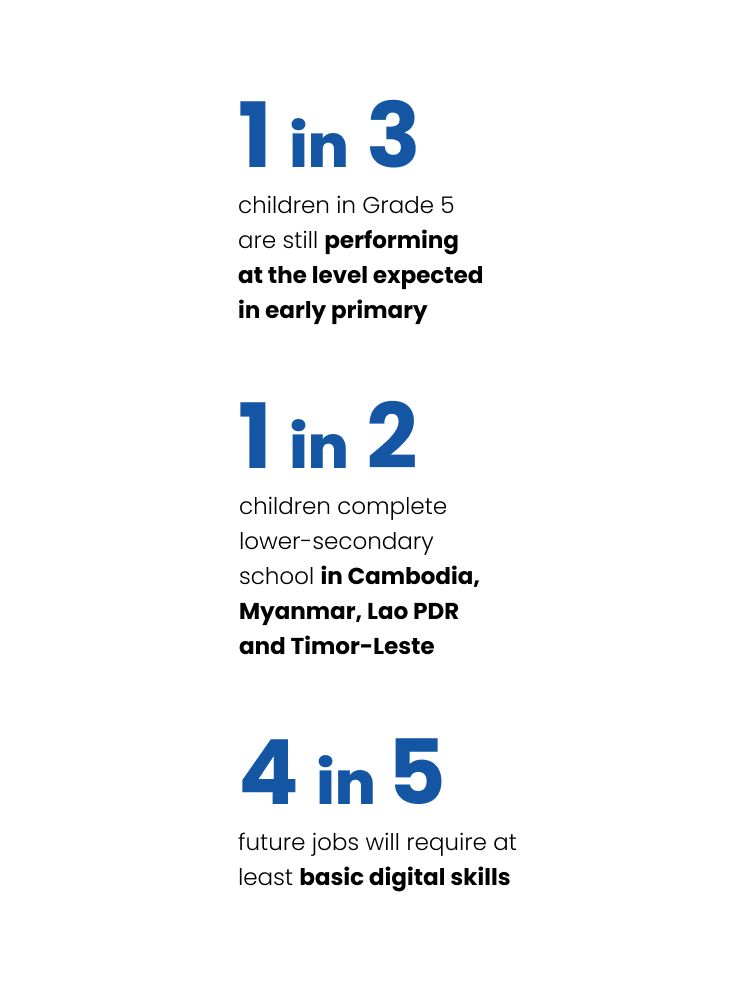
Many barriers undermine the educational experiences of girls and women, impacting their education at different learning stages across the lifespan.
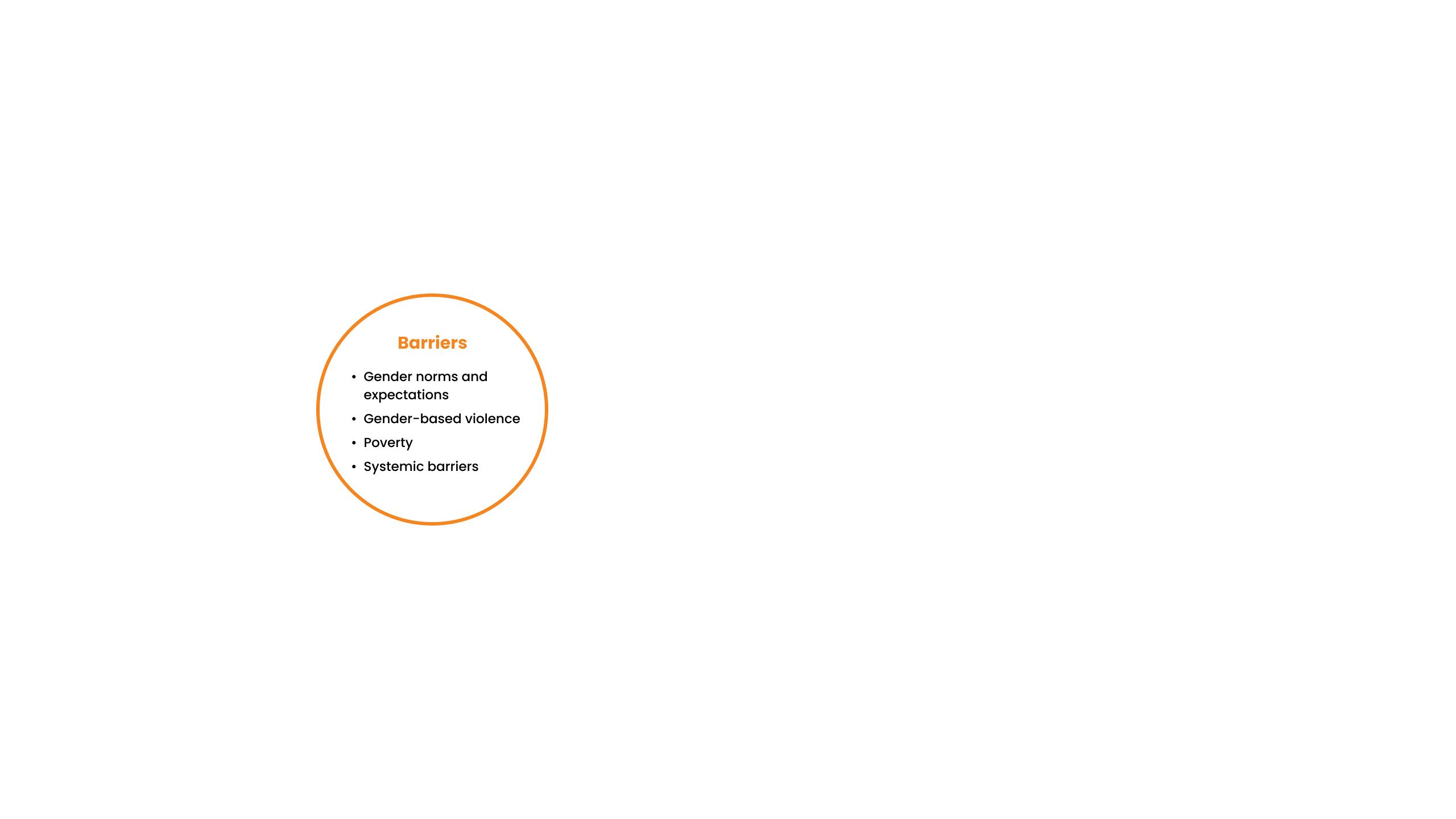
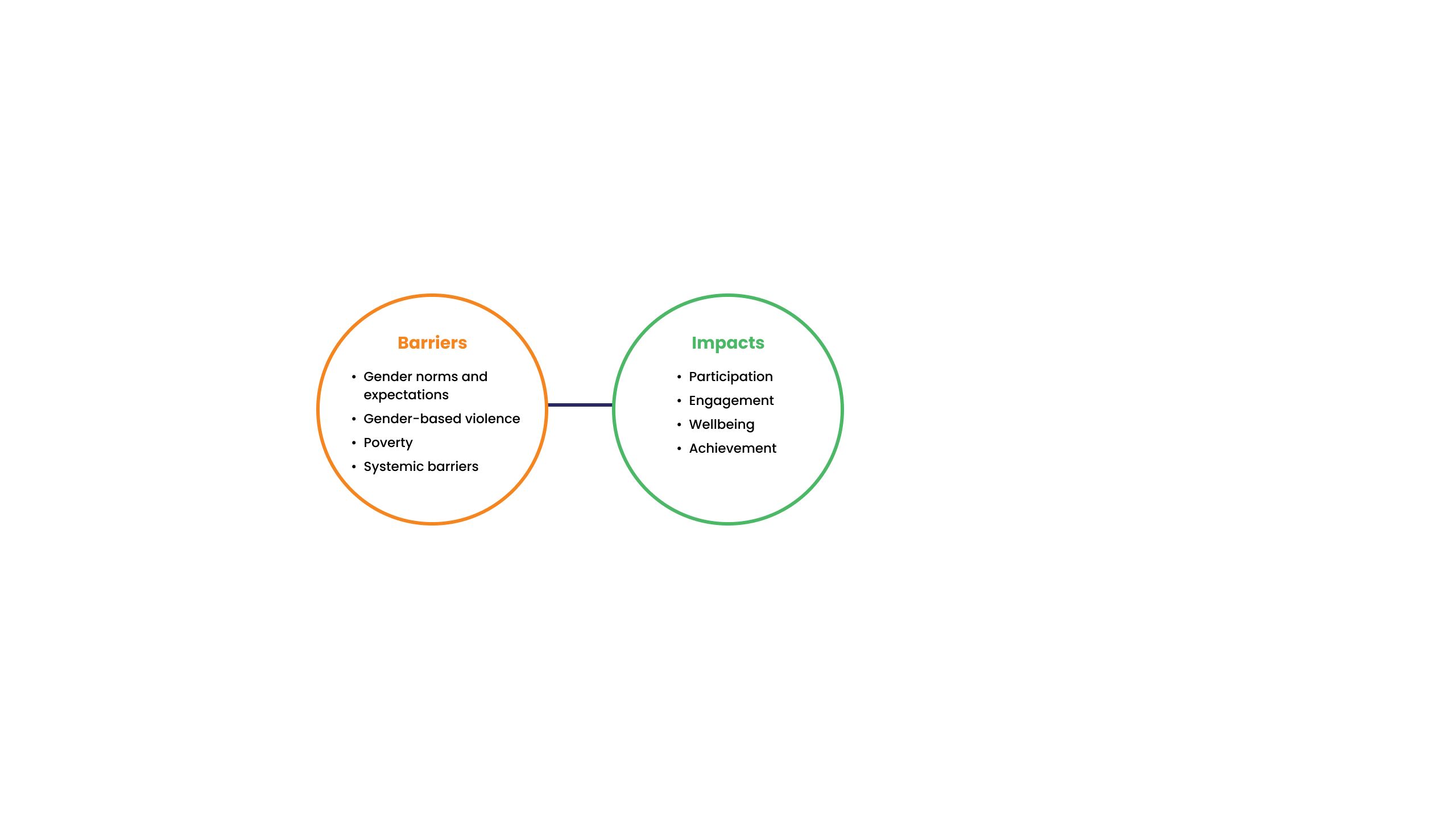
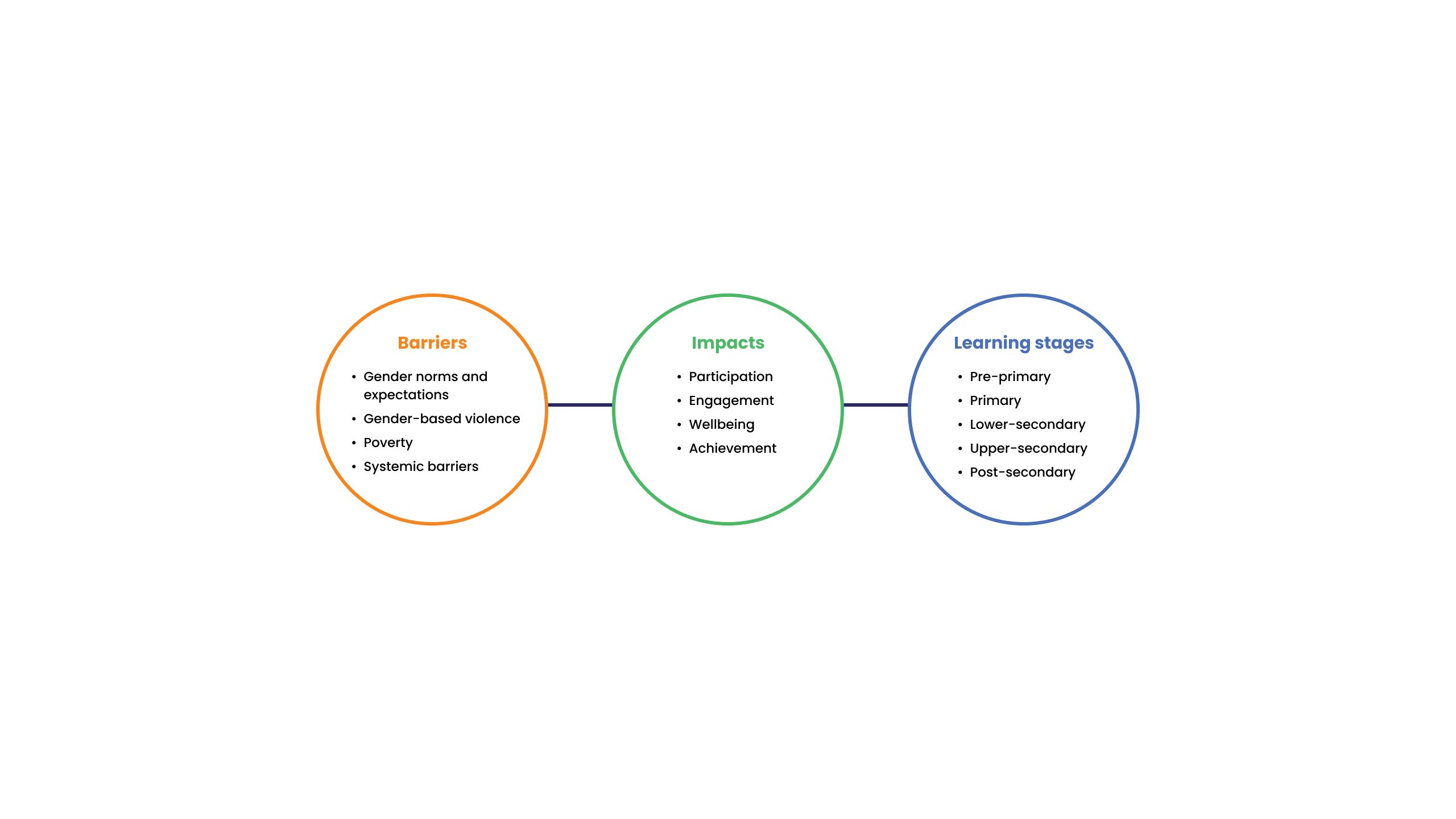
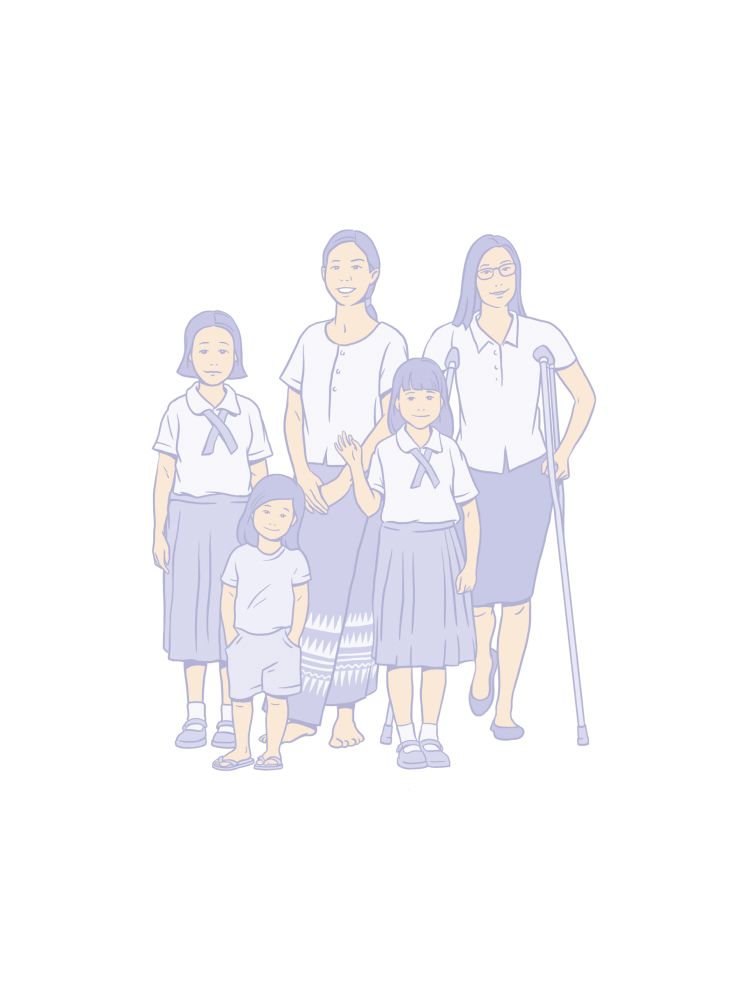
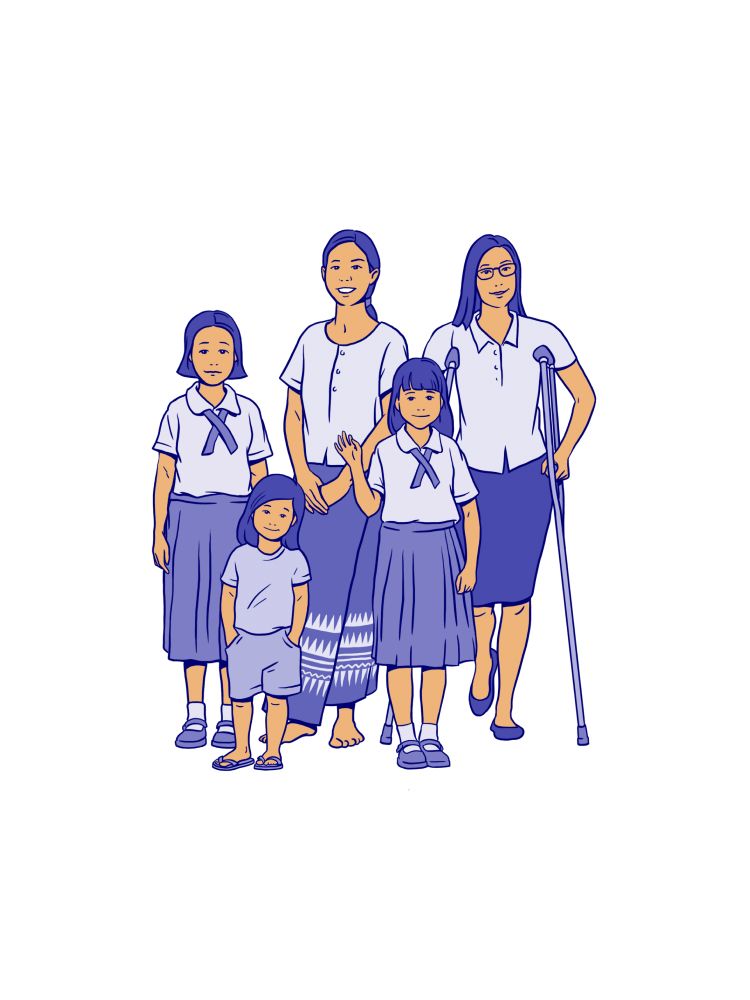
Continuing investment in girls’ education is needed
Investing in girls’ and women's education can transform individual lives, and shape the future of communities and countries. Educated women make better-informed decisions about healthcare, family planning and nutrition, marry later, and influence the trajectories of others.
When women and other marginalised groups are empowered and included in the workforce, economic growth and development are more likely. Making sure all girls complete 12 years of education could boost GDP in countries by 10%.
In the education sector, gender equity initiatives recognise that girls and women may have different needs, challenges and circumstances that require targeted approaches to ensure fairness and equality in education outcomes. Investing in gender equity campaigns can also improve safety and wellbeing, and help reduce gender-based violence and discrimination.
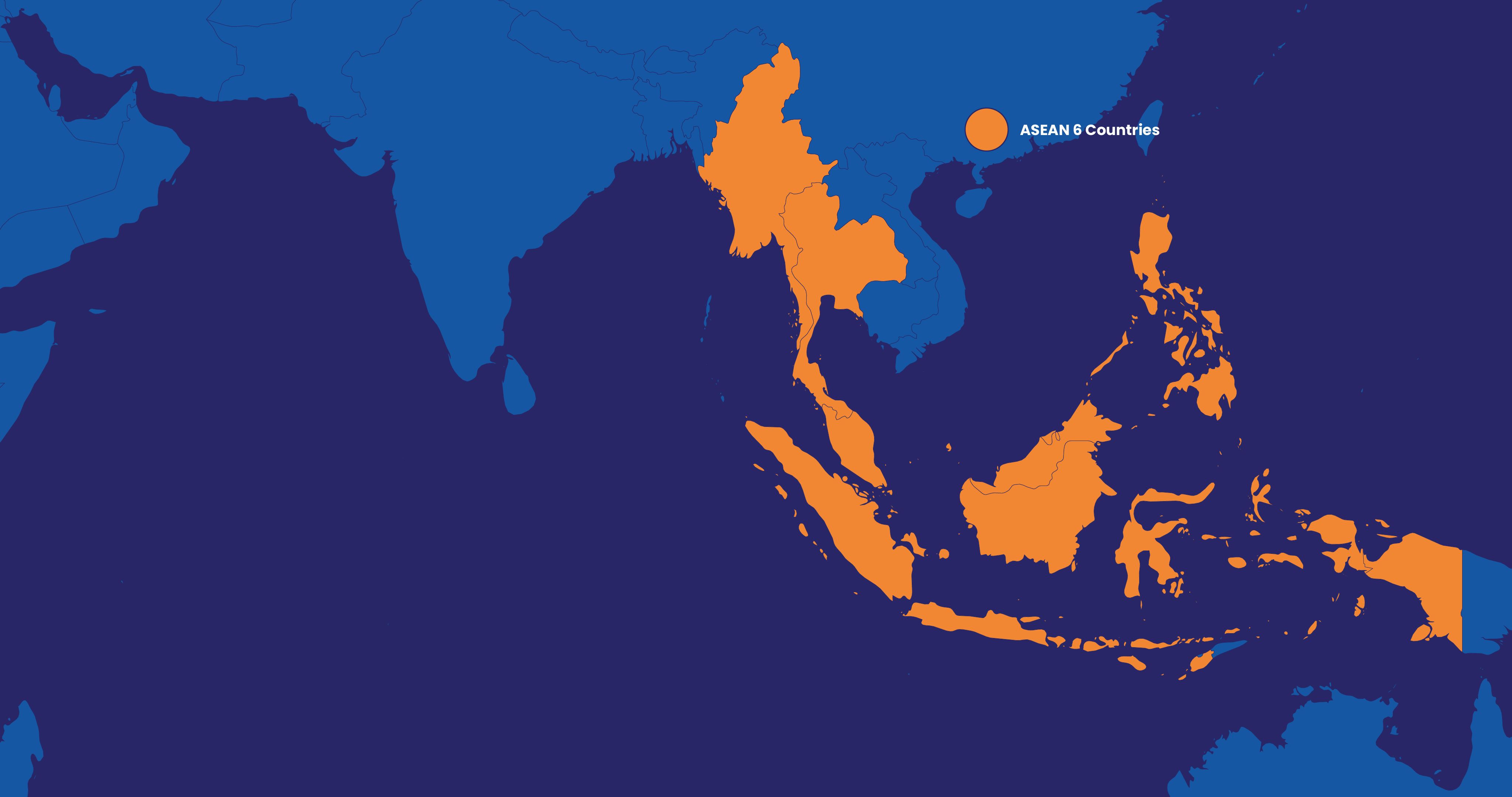
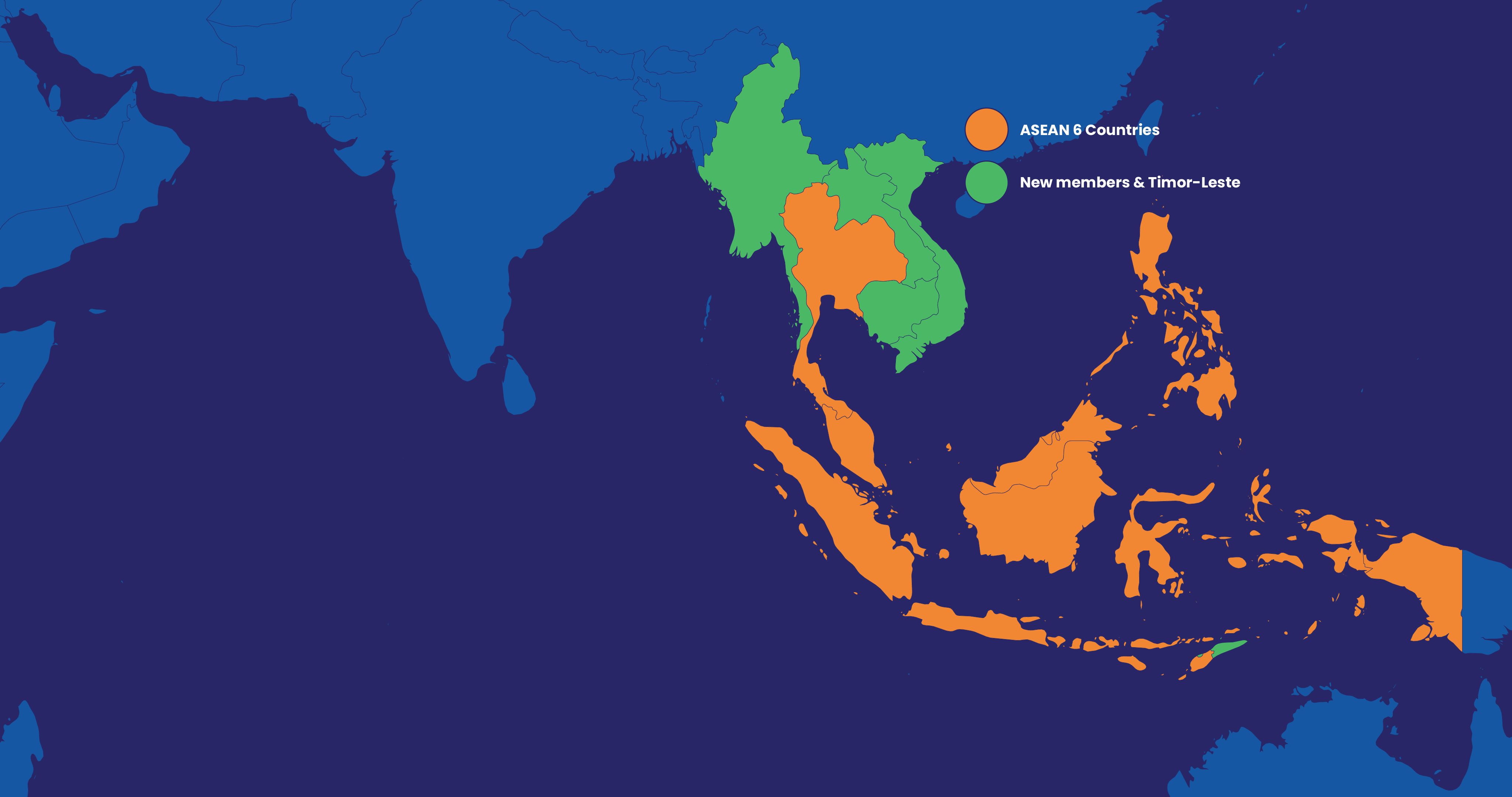
Our research
As part of the new ASEAN-UK Supporting the Advancement of Girls’ Education (SAGE) Programme, the Australian Council for Educational Research (ACER) has undertaken innovative new research to support the Initiative for ASEAN Integration.
A primary aim of the Initiative is to narrow the development gap between the first 6 ASEAN members (Brunei Darussalam, Indonesia, Malaysia, the Philippines, Singapore and Thailand – ASEAN-6) and the 4 newer members (Cambodia, Lao PDR, Myanmar and Viet Nam – CLMV), as well as within ASEAN member countries. Our research also focuses on Timor-Leste, who is currently an observer and the next country on the pathway to ASEAN accession.
Narrowing the education data gap
The ASEAN-UK SAGE Programme has developed a framework to track progress and understand underlying factors that explain differences in key educational, social and economic outcomes for girls, women and marginalised groups in the ASEAN region. Narrowing the data gap is a key priority of the ASEAN-UK SAGE Programme and the Initiative for ASEAN Integration.
The framework highlights the data available in each country across 9 priority areas:
- Education – participation and progress; learning; out-of-school
- Social – child labour; safety and wellbeing; marriage and family
- Economic – education investment; digital access and skills; employment.
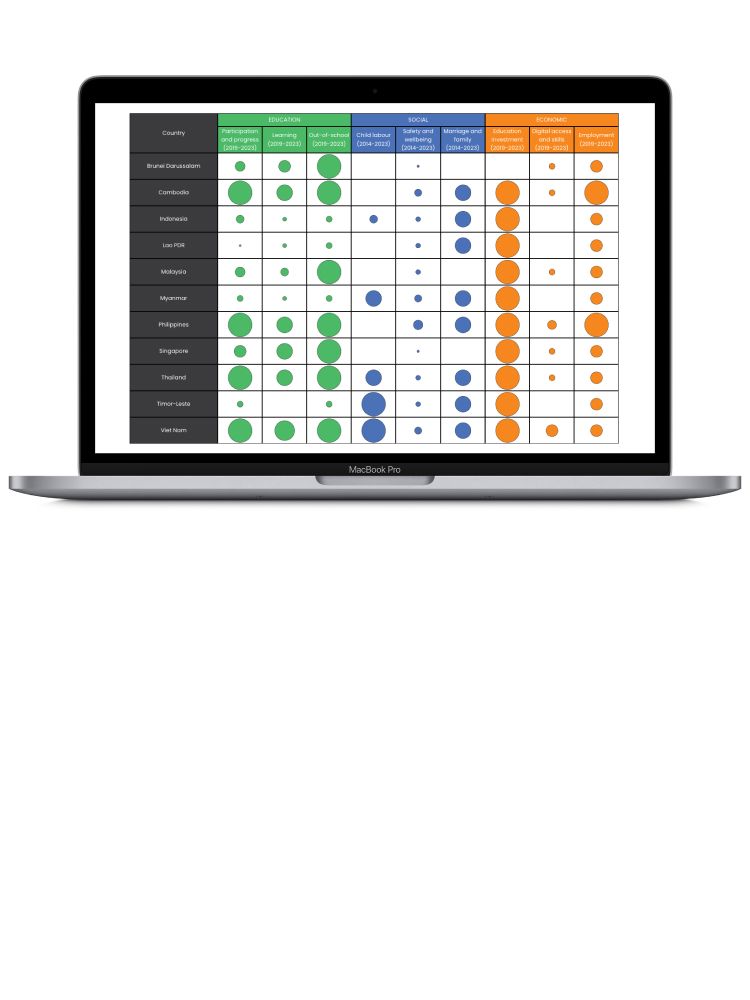
Closing the development gap
The ASEAN-UK SAGE Programme has published a series of thematic studies based on its 3 pillars:
- strengthening foundational learning for boys and girls
- engaging out-of-school girls and marginalised groups
- tackling gender barriers to basic digital skills for employment.
The thematic studies support the development of targeted evidence-based policy interventions to support girls, women and marginalised groups to close the development gap. They present the available evidence on the challenges facing girls and women in the ASEAN region, with a focus on CLMV-T countries.
Identifying promising evidence-based initiatives, the studies also offer tangible steps for partners at the regional, national and local levels to take together to enhance girls' and women's educational, social and economic trajectories. They provide a balanced assessment of what is known about an issue and document evidence gaps, using a systematic rapid evidence review approach to search and appraise the available research.
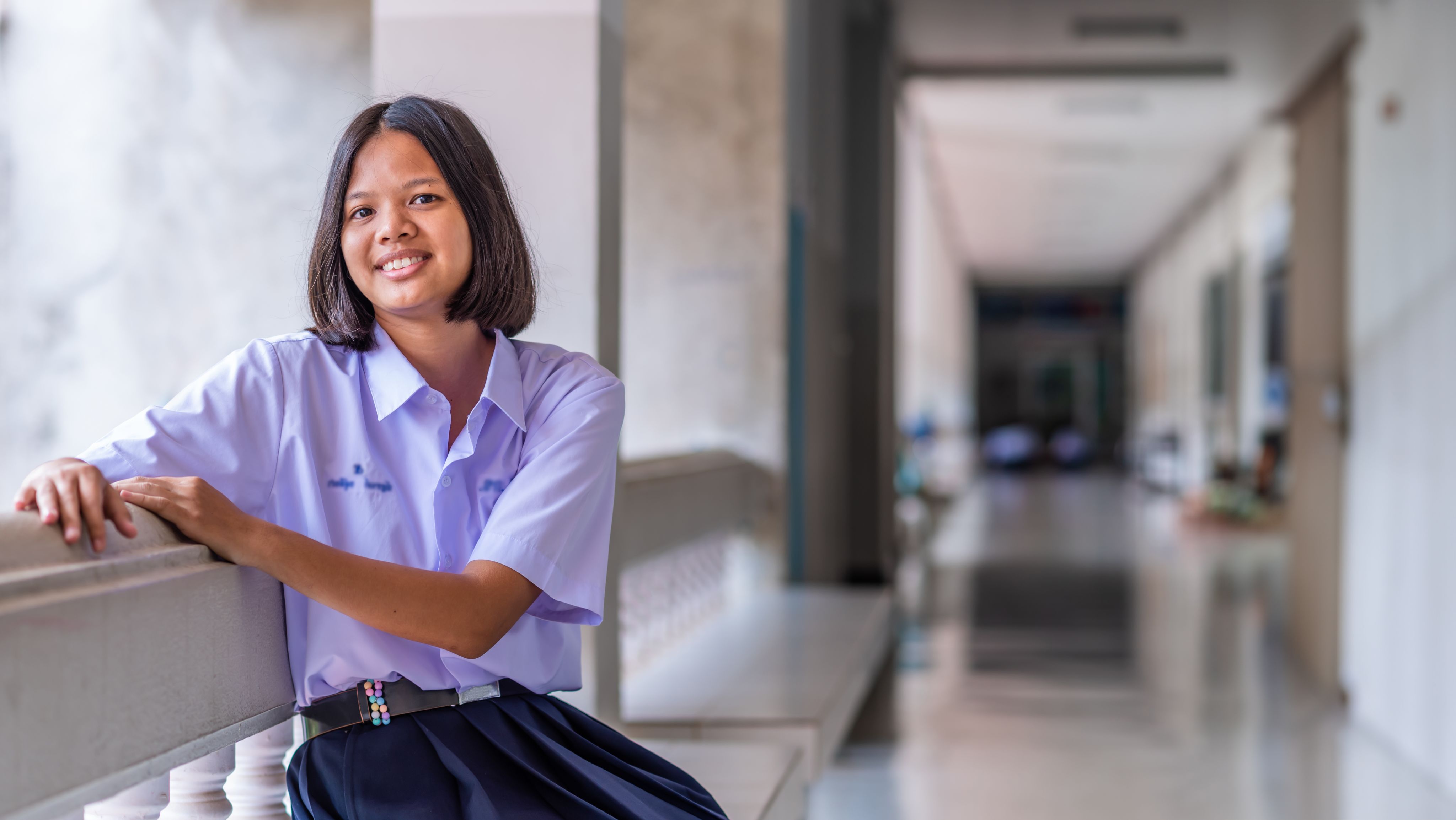
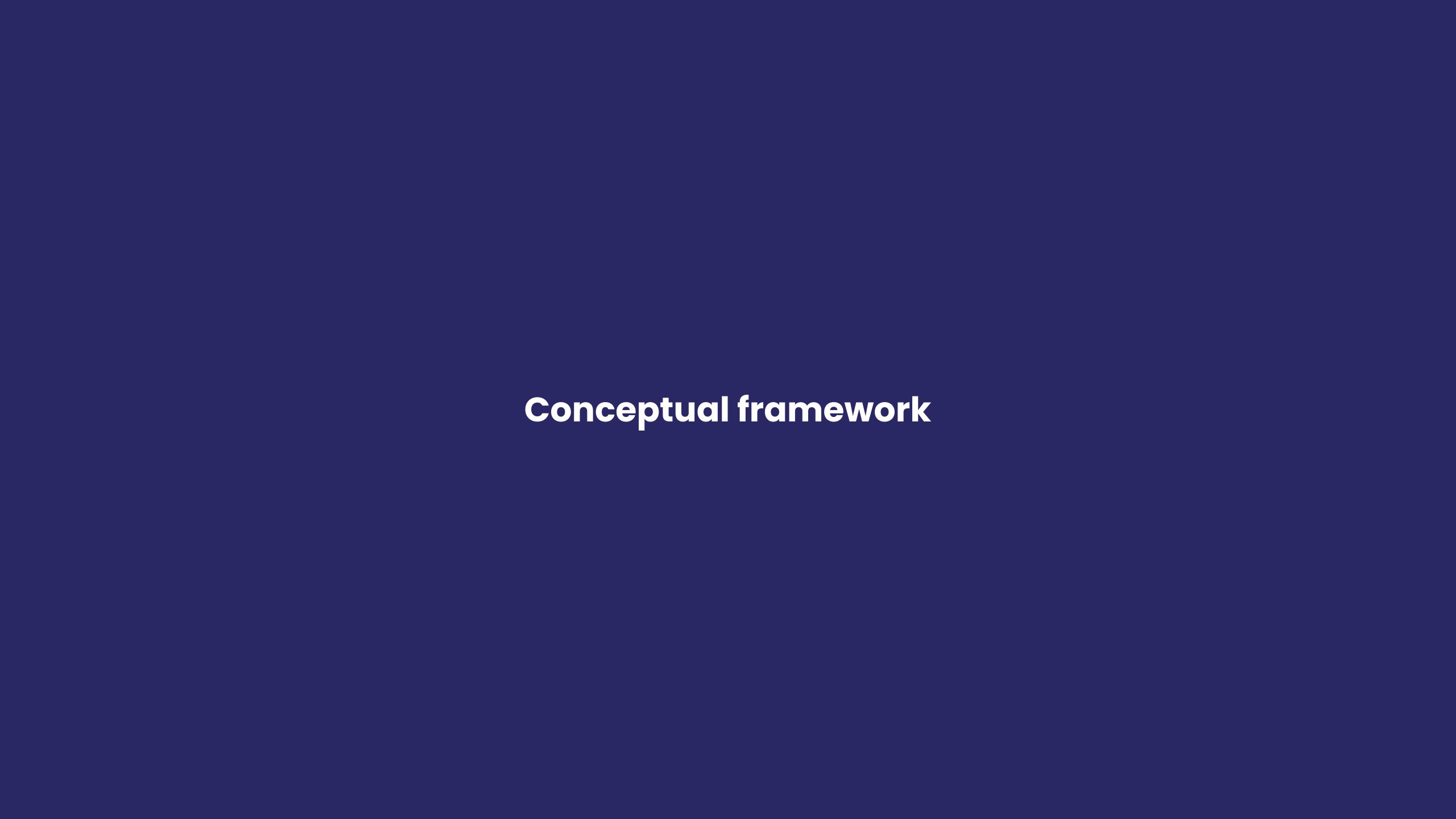
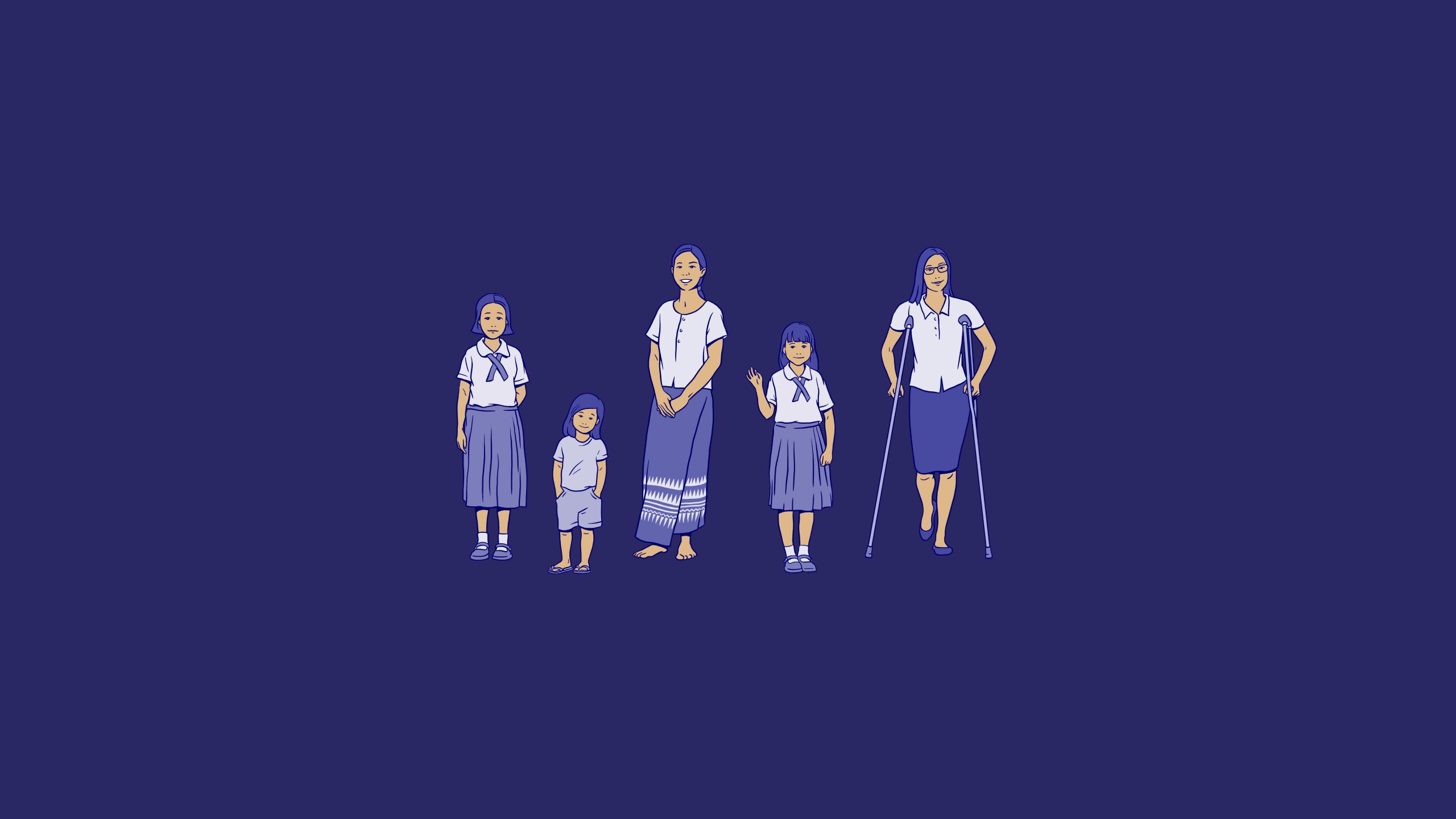

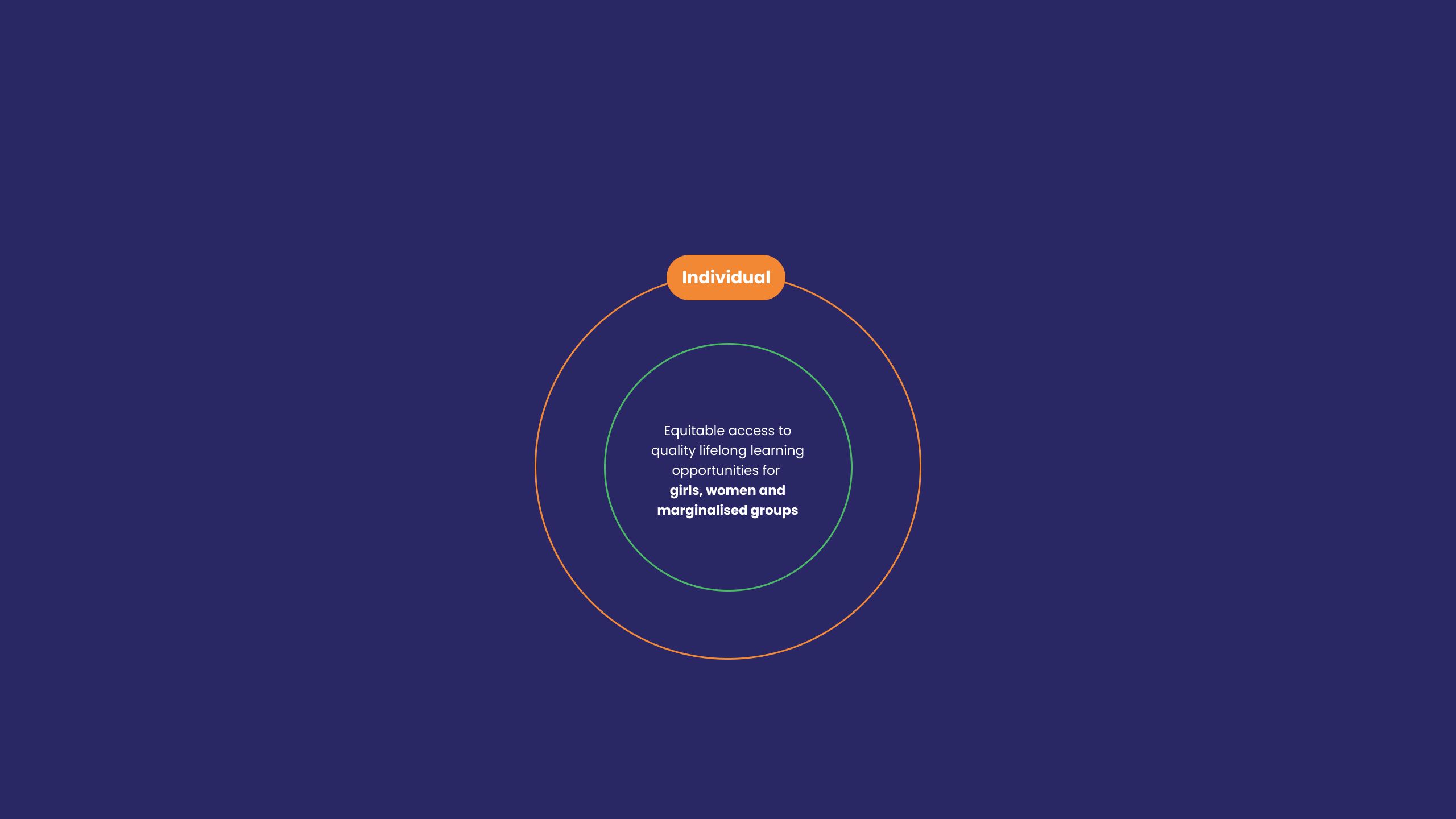
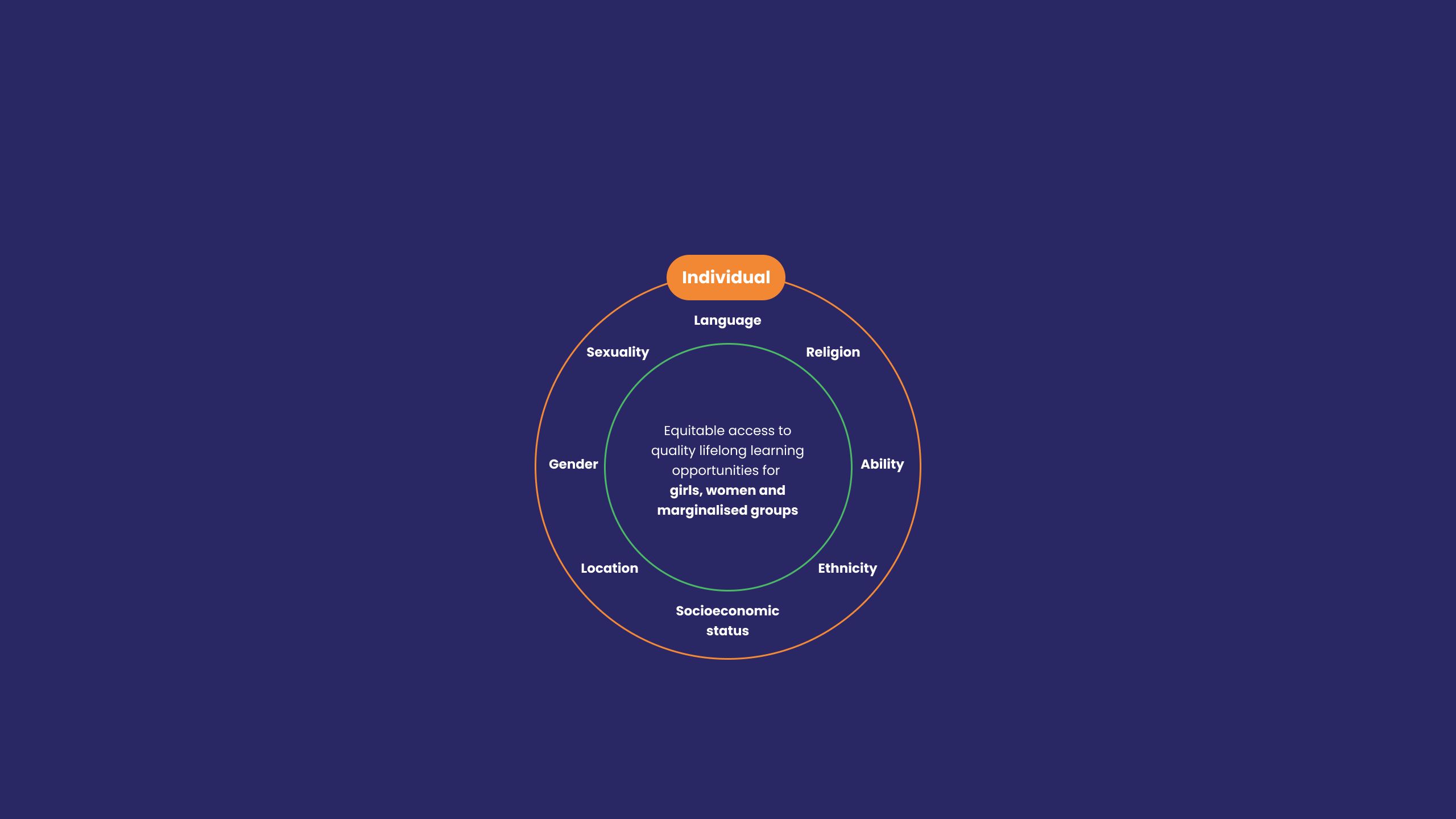
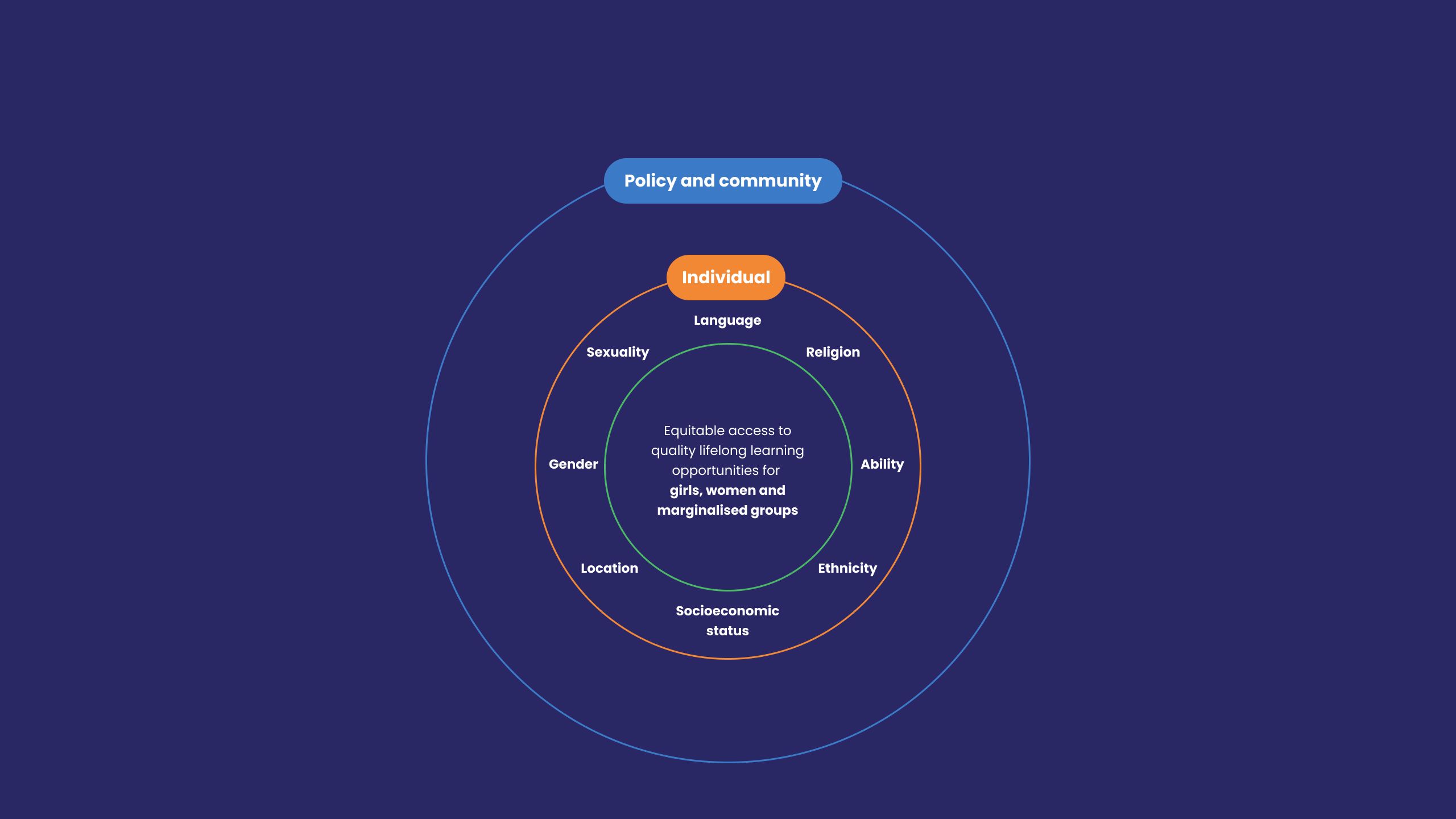
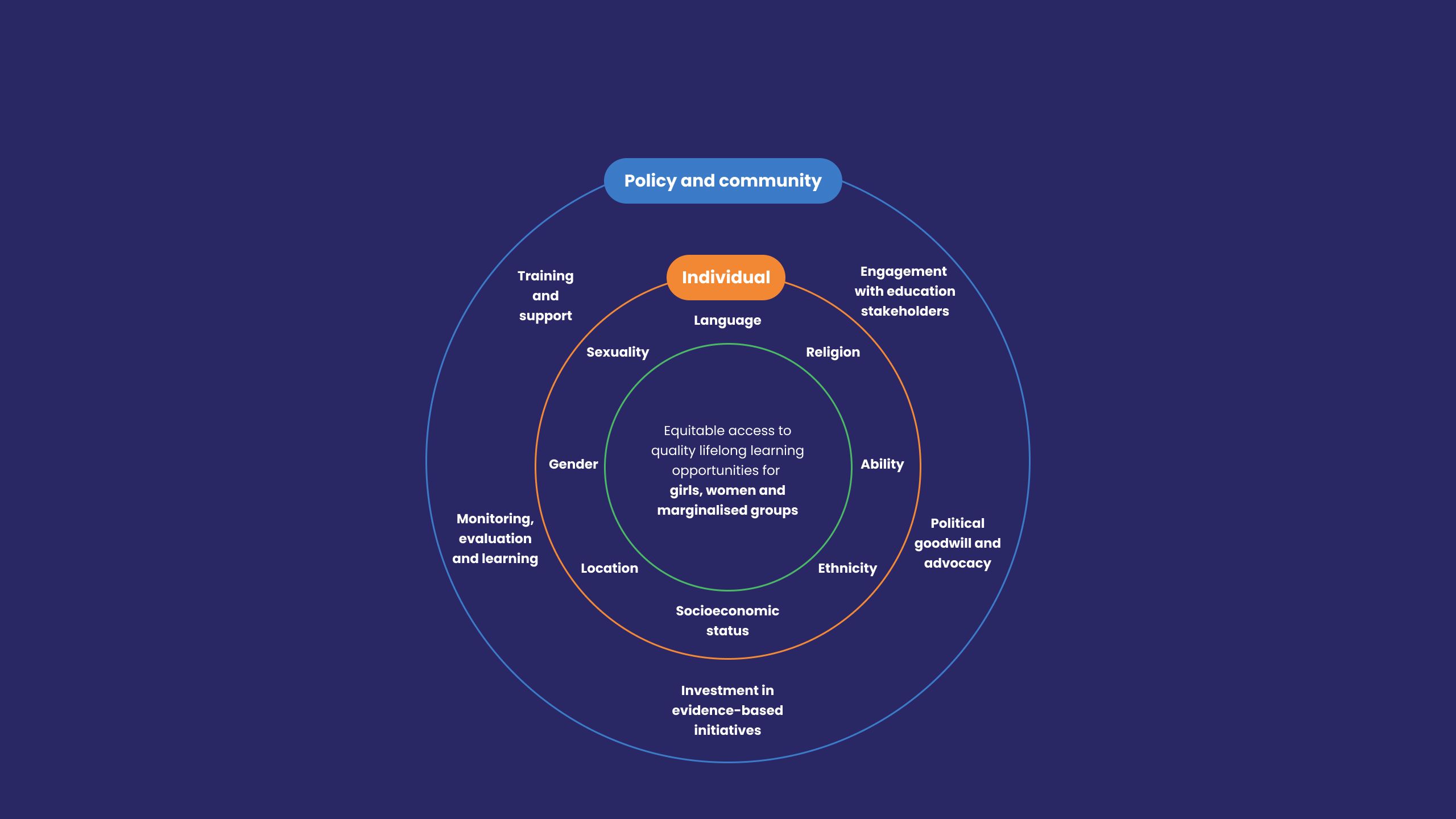
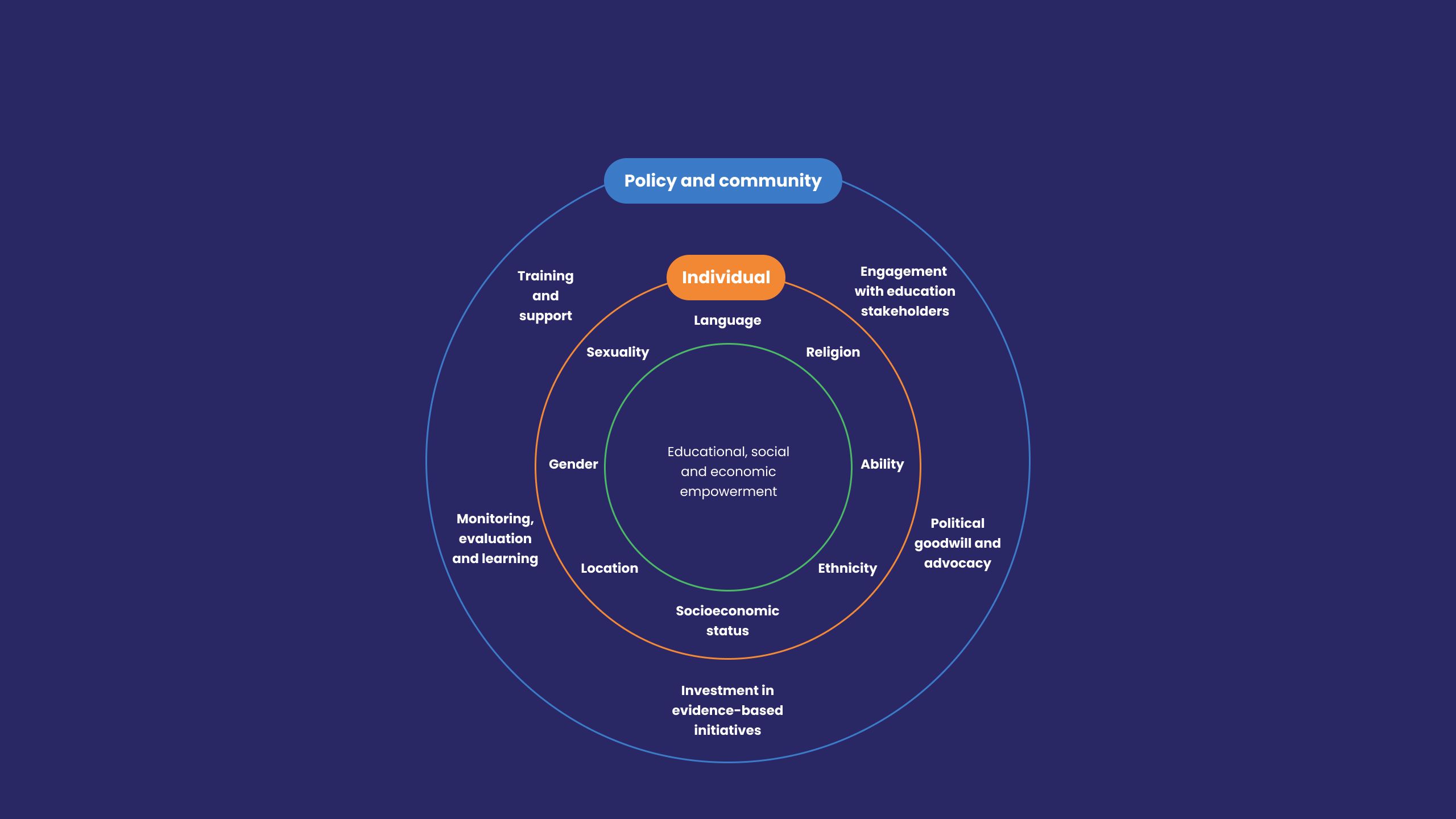
The research is informed by a conceptual framework that recognises that supporting equitable access to quality education for girls, women, and marginalised groups, involves ongoing support, monitoring, and investment across an individual's lifespan. By recognising education participation as lifelong, there are greater chances for girls and women to be empowered in education, society, and economic contexts.
In the conceptual framework, different levels of the education system (individual, policy and community) interact and support equitable access to quality lifelong learning opportunities.
INDIVIDUAL
At an individual level, a key component of the framework is the focus on intersectionality. Intersectionality highlights how different forms of discrimination and disadvantage can overlap and interact, shaping an individual’s experiences, opportunities and outcomes. In the ASEAN region, factors such as gender, ethnicity, socioeconomic status, religion, ability, language, location (particularly rurality) and sexuality can impact on educational opportunities and outcomes.
POLICY
At a policy level, the conceptual framework assumes that effectively supporting girls, women and marginalised groups relies on ongoing investment, political goodwill, and monitoring of gender equity initiatives by governments, development partners and industry. Well-designed gender equity and inclusion policies, supported by political commitment and strong institutional structures, include capacity-building activities, resourcing, investment in evidence-based practices, and engagement with education stakeholders.
COMMUNITY
At a community level, the framework highlights that engaging multiple stakeholders in supporting girls’ and women's education is crucial to enhancing educational and post-school trajectories. Education community stakeholders include learners, parents, families, teachers, school and institution leaders, community organisations and workplaces.
Inputs at the school and institutional level have the potential to positively influence outcomes, but the quality of those inputs and their potential to facilitate learning, engagement and belonging, depends on how communities interpret, implement and sustain broader policies focused on gender equity and inclusion. Importantly, effective community engagement is critical. The engagement of boys and men in gender progress efforts is crucial and often overlooked in current approaches.
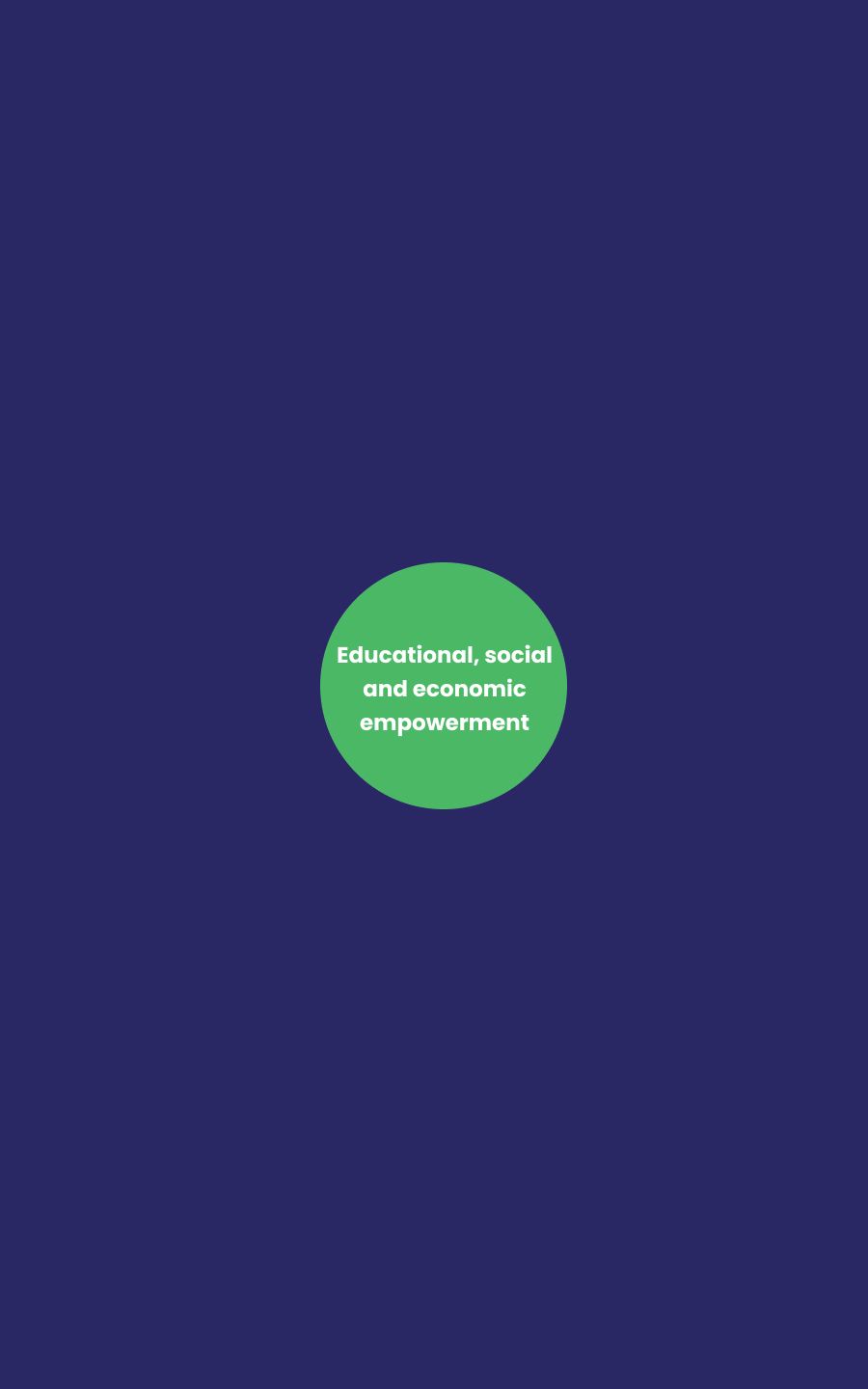
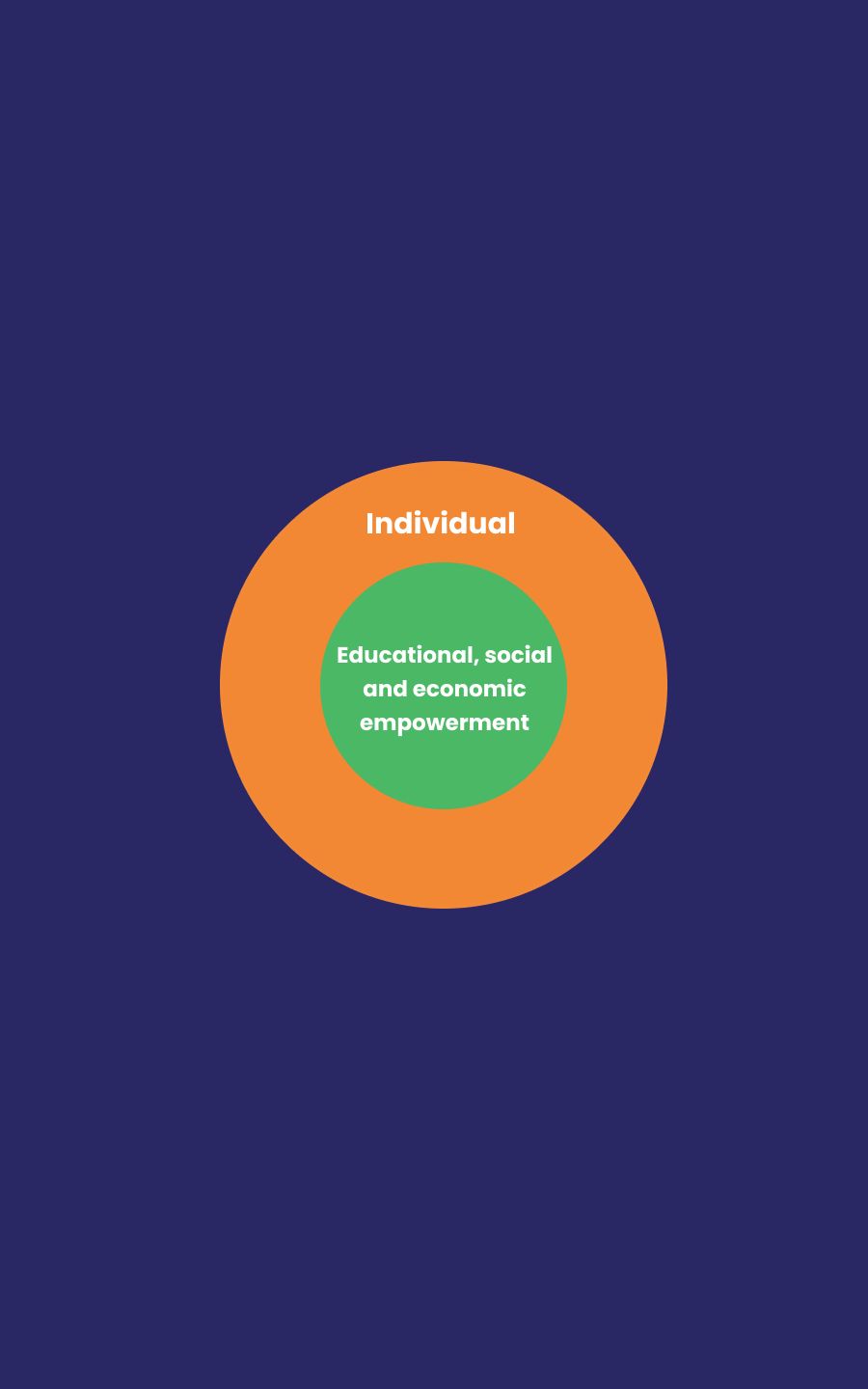
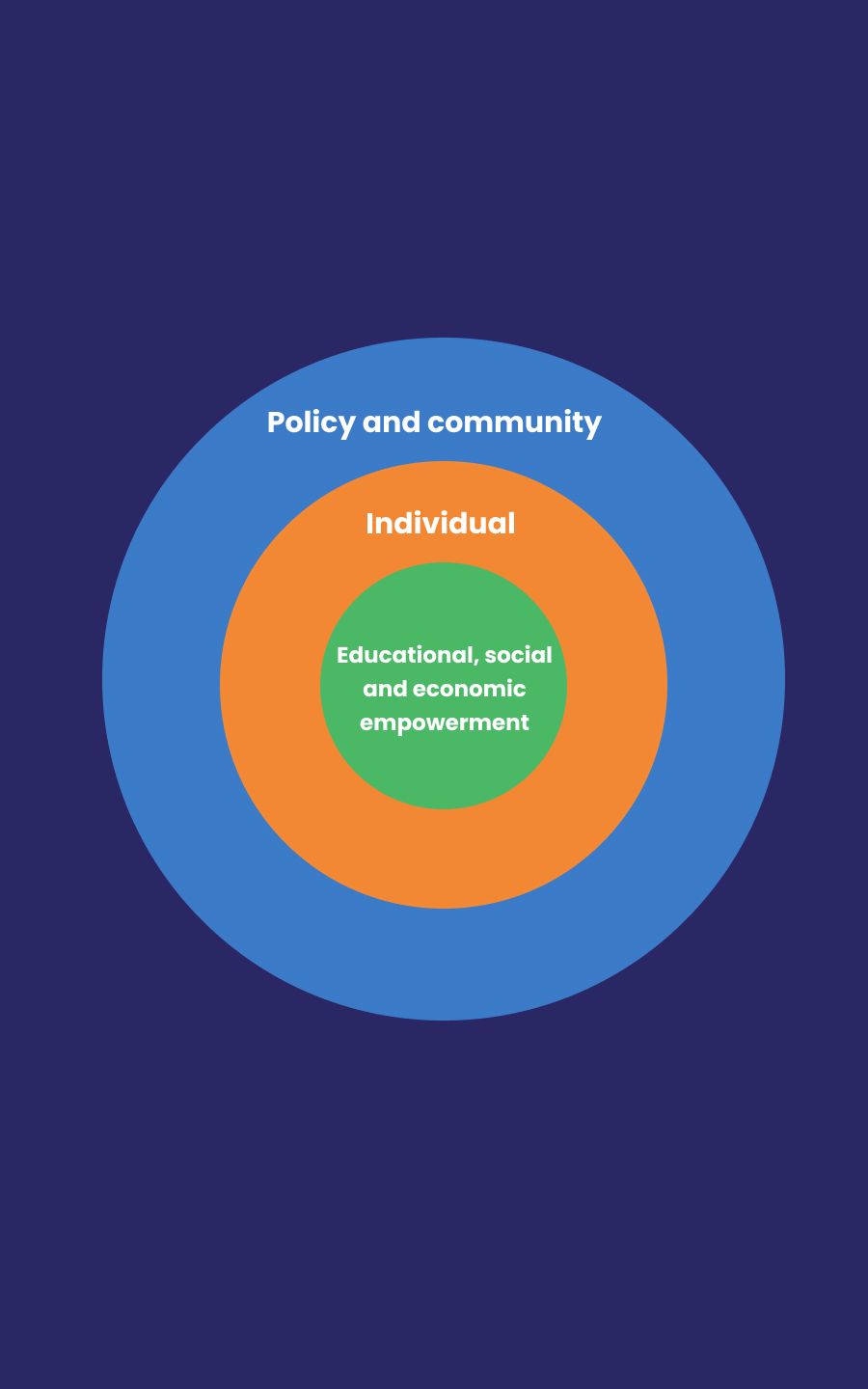
About the ASEAN-UK SAGE Programme
The ASEAN-UK SAGE Programme is the first project to be implemented under the ASEAN-UK Plan of Action (2022-26). The 5-year programme aims to support ASEAN member states to develop effective policies and programmes that improve foundational learning and tackle constraints limiting the achievement of girls, women and marginalised groups. The ASEAN-UK SAGE programme is delivered by British Council and SEAMEO Secretariat, in partnership with EdTech Hub and the Australian Council for Educational Research. ASEAN-UK SAGE is an ASEAN cooperation programme funded by UK International Development.





